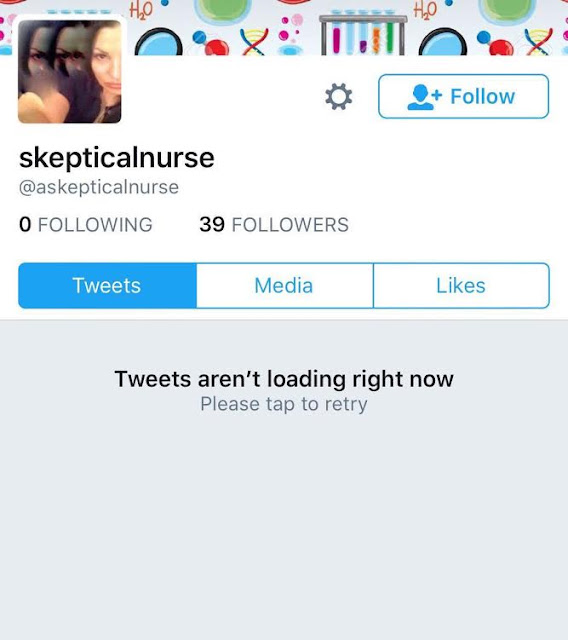Here's a trend I'd love to see die. I can't go five minutes without seeing some snotty know-it-all whipping out the same argument every time someone brings up a concern with a food additive, or other substance. Most commonly though, it comes up when talking about the world's most ubiquitous herbicide.
Note the condescending attitude of commenters, and lack of understanding of LD50 amounts. The
higher the dose, the less acutely toxic something is, which two of these fail to grasp - but we'll get into that more while we take a look at the memes that often accompany these types of comments.
Exhibit A:
Here we have naturally occurring compounds from two edible plants used as an insecticide, being compared to the active ingredient in a synthetic herbicide. Both
capsaicin and
allicin have documented health benefits and theraputic uses, and can be easily washed off of food. Glyphosate is the active ingredient in Roundup, a systemic herbicide formulation that contains proprietary ingredients to help it work better. It cannot be washed off. The LD50 (lethal dose 50 or
median lethal dose) is used to indicate how acutely toxic a substance is. In other words, how much it would take to kill you. This has nothing to do with chronic exposure, nor does it apply to chemicals with a
non-monotonic dose response. This false equivalence theme continues with...
Exhibit B:
Here is a chart comparing the acute toxicity of numerous substances - salt, caffeine, pharmaceutical drugs, and pesticides, to riboflavin/vitamin B2. It was created by a lobbying group called
Washington Friends of Farms & Forests, with two
officers who just so happen to be Bayer employees.
Speaking of Bayer employees...
Exhibit C:
This is one I have addressed before in a previous post,
Diluting The Truth. This is from Cami Ryan, Social Sciences Lead at the former Monsanto Co. Sarah Schultz of Nurse Loves Farmer referenced this chart as proof that "
...the dose makes the poison. This goes for anything—not just pesticides used in agriculture!" Again, for the MILLIONTH time - this is simply
not true for
all substances. Sigh.
And now for...
Exhibit D:
No, genius, because Starbucks serves coffee to drink, not herbicide.
 |
| Seriously. |
Exhibit E:
This one is probably the most accurate, (even if virtually no one is eating apple seeds on purpose) however, it's like one puzzle piece rather than a full picture. It's not wrong so much as it's
incomplete, and misused by Skeptics. Indeed, just because a chemical is present does not mean that it is harmful in the amount present, but that does not mean low levels of chemicals cannot be harmful, as in the case with lead or endocrine disrupting chemicals (EDCs). But Skeptics still try to fudge that picture up as much as possible - when they aren't just
outright denying their existence or
avoiding the topic. It should come as no surprise then that this particular graphic was commissioned by Sense About Science,
known to champion chemical products while hiding ties to industry. It suits their agenda just fine, and Skeptics are more than happy to help them.
While writing this piece, I decided to search 'the dose makes the poison' on twitter, just to see if any other graphics came up. Lo and behold...
Exhibit F:
I typed the link on the photo into my browser and came up with a review article discussing the
pros and cons of phytoestrogens (plant estrogens) on human health. 'Science Mom' Mommy PhD has badly misrepresented the information in this review in her graphic. For instance, the authors state regarding the difference in public attitudes toward synthetic EDCs and phytoestrogens: "
Source, rather than evidence for effects likely contributes to this incongruous attitude." This does not jive with her quote at the bottom of the graphic. The words 'likely contributes' does not mean 'the foundation for' last I checked. The authors in the review go on to say "
The 1999 approval by FDA of the health claim that daily consumption of
soy is effective in reducing the risk of coronary artery disease has undoubtedly cemented the idea in the minds of many that soy is beneficial for human health." Basically, the general public's attitude toward phytoestrogens has a lot more to do with the health benefits being touted - not purely a naturalistic fallacy which she implies here. Not only that but the graphic is taking what the review said about phytoestrogens and applying it equally to synthetic EDCs making it seem as though
the risk is the same from either one when that's not what was said at all. I'll tell you what's really incongruous - Mommy PhD's ahem, creative interpretation of her citation for this picture.
The fact remains, that acute toxicity, sub-lethal harm, chronic toxicity, dose, timing, sequence, vulnerable populations, and many other factors make this a complex discussion that can't be boiled down into a meme. Even so, I doubt that Skeptics will lay off this logical fallacy any time soon, as this is one of their core arguments. It would be in their own best interests though, as this gross simplification only serves to shine a giant spotlight on their scientific illiteracy in this matter.

































